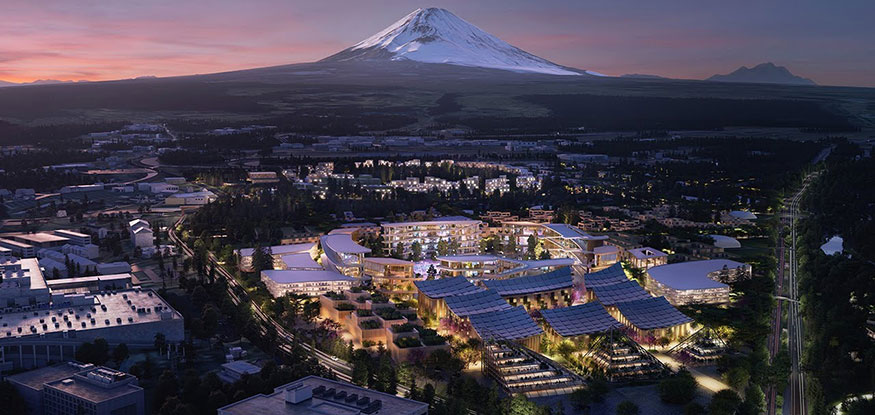Toyota announced plans to convert the 175-acre site of a former car factory near Mount Fuji into Woven City, the world’s first programmable city located in Japan.
Envisioned as a "living laboratory," the Woven City will provide a testing environment for personal mobility, artificial intelligence (AI), and robotics. Moreover, it will offer a number of opportunities for businesses and researchers around the world.
“Together with the support of our project partners, we will take on the challenge of creating a future where people of diverse backgrounds are able to live happily,” said Toyota Motor president Akio Toyoda.
Initially, the community will have around 360 residents who are mainly senior citizens, families with young children, and inventors. Overall, the population count may reach more than 2,000 individuals, including Toyota employees.
According to the developers, this smart city infrastructure will feature three types of streets all linked together. One will be designated for self-driving vehicles, the other for pedestrians, and the last lane for pedestrians with mobility vehicles. Additionally, underground routes will enable products to be delivered without disrupting other road users.
Driverless cars, specifically Toyota’s e-Palettes, are said to be the majority of the project’s transport infrastructure. These will provide ride-sharing capabilities and act as delivery vehicles as well, and even mobile hotels.
Making the whole ‘Woven City’ focused on mobility, human-centered design approaches, and sustainable operations, the streets are to be covered with sensors in order to facilitate autonomous vehicles and the ecosystem will be powered by solar, geothermal, and hydrogen fuel cells.

